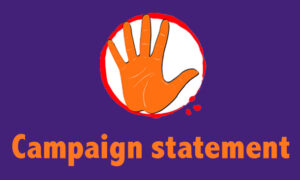The release of Donya Hosseini’s killer after three months in prison: a Killing protected by law, ongoing fears for her sisters
By Rezvan Moghaddam
The father of Donya Hosseini, a young woman who was killed on February 17, 2025, after requesting a divorce, has been released after serving only three months in prison.
Donya was stabbed multiple times and killed by her father in Kermanshah Province,
motivated by patriarchal notions of “honor” and “paternal ownership” over her life and
body.
Donya had three sisters: Shaqayeq, Rezvan, and Zahra. The husband of Shaqayeq
Hosseini, who is a member of the Islamic Revolutionary Guard Corps (IRGC), has been
accused of sexually assaulting both Donya and her 17-year-old sister, Zahra. Since
Donya’s killing, Zahra has suffered severe psychological trauma and is currently under
the care of Iran’s Welfare Organization. With the father’s release, family and community
concerns have deepened over the potential return of Zahra to her father’s home—a
home marked by violence, suppression, and sexual abuse. In an interview with Etemad
Newspaper, Rezvan, another sister, confirmed that all the sisters, including Donya, had
suffered severe psychological and physical abuse from their father and other male
relatives.
Under Article 301 of the Islamic Penal Code, a father who kills his child is exempt from
retribution (qisas) and only faces the payment of blood money (diya) and discretionary
punishment (ta’zir), such as imprisonment. This law has effectively enabled repeat
domestic killings by shielding perpetrators from full accountability. The release of
Donya’s father after only three months in prison is a stark example of this legal failure.
Although an amendment to Article 612 was passed in 2021, promising that fathers who
kill their children would no longer benefit from early release and other legal privileges, in
practice, the law has either not been fully enforced or remains insufficient. The
amendment stipulates that in cases where the killer is the legal guardian (wali-ye qahri),
the court should restrict their custody rights—but the release of Donya’s father shows
that such provisions are often ignored or lack enforceable authority.
This case is a clear instance of femicide committed by a family member: a father who
kills his daughter for asserting her independence and seeking a divorce, and then
evades full punishment with the backing of legal institutions. The laws of the Islamic
Republic not only fail to protect women—they often legitimize violence against them.
From Romina Ashrafi to Donya Hosseini, as long as concepts like “honor” and “paternal
authority” are prioritized over women’s lives, women and girls in this country will be
denied the right to live and choose their paths. Killers exploit the loopholes in the law
while victims are erased. This is not just a legal failure; it is a moral and societal
catastrophe for all of Iran. Laws meant to safeguard life—especially that of women and
children—are, under the Islamic Republic, serving murderers and criminals instead.
StopHonorKillingsCampaign
SafetyForWomen
WomenHaveTheRightToLive
NoToViolenceAgainstWomen
IslamicRepublicIsResponsibleForTheKillingOfWomen
NoToControlOfWomen’sBodies
NoToMisogynistCulture
DonyaHosseini
Follow news in the Stop honor Killings Campaign Telegram group:
https://t.me/stophonorkilling
Support the Stop Honor Killings Campaign with Your Donations via PayPal:
https://paypal.me/stophonorkillings?country.x=US&locale.x=en_US
Stop honor Killings Campaign
















